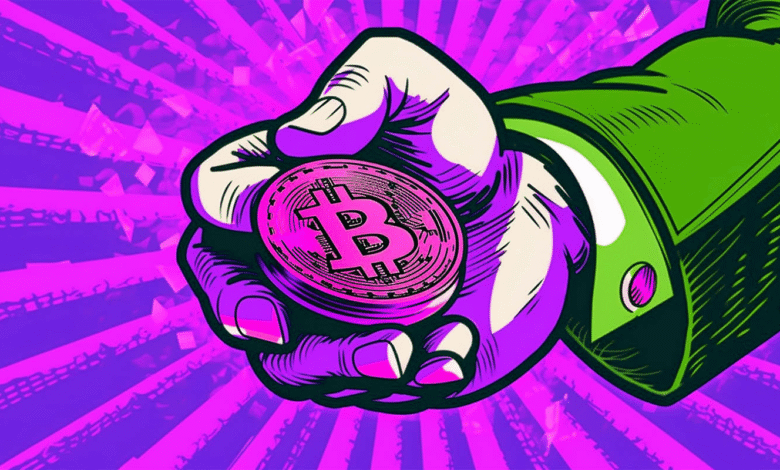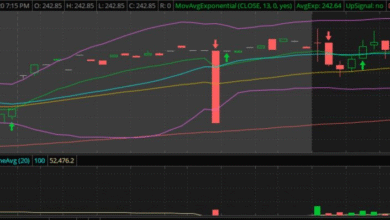Bitcoin Surge: Institutional Investment Drives Price Past $100K

Bitcoin surge has captured the attention of investors around the globe, particularly as it skyrockets past the coveted $100,000 mark. This impressive rally has been fueled by a surge in institutional investment, signifying a shift in how major players perceive cryptocurrency trends. Recent developments, such as Bhutan’s strategic offloading of 2,584 BTC and the swift legal initiatives by two U.S. states to implement bitcoin reserves, point to a burgeoning acceptance of digital assets. Furthermore, the introduction of a federal draft bill aimed at creating a clear regulatory framework for Bitcoin suggests that the regulatory landscape is evolving to support sustained growth. Amidst this, Bitcoin news continues to swirl as the market grapples with both opportunities and challenges, including the darker consequences of rising crypto wealth as highlighted by recent criminal incidents.
The meteoric rise of Bitcoin in recent weeks is a testament to its growing prominence in the financial landscape. As it breaks through major resistance levels, the implications of this bullish trend resonate across various sectors—calling it a digital gold rush. The emergence of institutional money flowing into Bitcoin signifies a pivotal moment, underscoring a broader acceptance of cryptocurrencies among mainstream investors. Coupled with regulatory advancements unfolding in the U.S. and proactive measures by governments, the environment for digital currencies is becoming increasingly favorable. This momentum not only redefines trading strategies but also brings attention to the inherent risks associated with digital asset investments, highlighting the need for caution in the face of potential threats linked to wealth in the crypto space.
Bitcoin Surge: A New Era of Institutional Investment
The recent Bitcoin surge, propelled past the $100,000 threshold, highlights a significant turning point in the cryptocurrency market. Institutional investors have increasingly recognized Bitcoin as a viable asset class, similar to traditional investments like gold and stocks. The influx of institutional capital not only stabilizes the Bitcoin price but also cements its status as a mainstream financial instrument. With hedge funds, insurance companies, and even corporate treasuries allocating portions of their portfolios to Bitcoin, the long-term outlook for Bitcoin remains optimistic.
As institutional investment in Bitcoin continues to grow, so do the innovations surrounding it. Increased demand has sparked interest in developing new financial products such as Bitcoin ETFs (Exchange-Traded Funds) and futures contracts. Additionally, established financial firms are creating platforms that facilitate trading, safeguarding, and accounting for Bitcoin, further enhancing its appeal among both retail and professional investors. This convergence of traditional finance and cryptocurrency highlights a broader acceptance of Bitcoin as part of global financial ecosystems.
Bhutan’s Bitcoin Strategy: A Sovereign Approach
Bhutan’s recent decision to offload 2,584 BTC within a 40-day span reveals a unique approach to managing cryptocurrency as a national asset. With Druk Holding leveraging Bitcoin as both a reserve and a liquid asset, this strategy deviates from conventional methods employed by most sovereign states. While many governments are hesitant to fully embrace cryptocurrencies due to regulatory concerns, Bhutan’s initiative to integrate Bitcoin into its financial strategy showcases a forward-thinking perspective amidst changing cryptocurrency trends.
The landlocked kingdom’s actions serve not only as a tactical reserve but also as a beacon of innovation, urging other nations to reconsider their stance on Bitcoin regulation. By treating Bitcoin as a treasury component, Bhutan sets an example that could encourage other states to explore similar strategies, especially in regions with burgeoning interest for cryptocurrency. Such moves could enhance the global dialogue on Bitcoin regulation and pave the way for more structured and supportive frameworks.
Bitcoin Regulation: The US Leads with New Draft Framework
The recent unveiling of the U.S. draft crypto bill marks a pivotal moment for Bitcoin regulation. This comprehensive legislation aims to clarify the legal status of digital assets, offering a structured framework that seeks to protect investors while fostering innovation in the cryptocurrency industry. By outlining regulatory expectations, it addresses many concerns highlighted by stakeholders regarding the need for clearer guidelines amidst the fast-paced evolution of cryptocurrency trends.
The draft bill is particularly important for institutional investors, as it provides assurances that their assets will be managed within a regulated environment, enhancing trust in Bitcoin as a serious investment. As the cryptocurrency market matures, regulatory clarity is essential in attracting further institutional commitment. This move by the U.S. government signals that we might be entering a new phase known as the ‘Golden Age of Digital Assets’, where cryptocurrencies like Bitcoin can operate alongside traditional financial systems with greater legitimacy.
Emerging State-Level Bitcoin Strategies in the U.S.
The rapid enactment of strategic Bitcoin reserve legislation by two U.S. states within 48 hours illustrates a growing recognition of Bitcoin’s potential at the state level. This proactive approach by states, particularly Texas and Wyoming, reflects an understanding of the benefits that come with adopting Bitcoin reserves. Such laws not only facilitate better financial management for states but also position them as pioneers in the evolving digital currency landscape.
This legislative trend is set to encourage further adoption of Bitcoin among other states, all vying to attract institutional investments and innovative cryptocurrency projects. By creating frameworks that support Bitcoin reserves, these states aim to bolster economic growth and ensure their competitiveness in a rapidly digitalizing economy. The development of these regulations might inspire regions worldwide to explore similar avenues as they navigate the intersection of finance and blockchain technology.
The Dark Side of Crypto Wealth: High-Profile Abductions
The tragic incident involving the abduction of a crypto millionaire’s father in Paris underscores the darker side of the burgeoning crypto wealth. As the value of Bitcoin and other cryptocurrencies climbs, so too does the risk surrounding high-net-worth individuals who hold significant assets in digital currencies. This situation not only raises concerns over personal safety but also sheds light on the security measures that cryptocurrency investors must consider.
Investors are increasingly advised to take precautions regarding their crypto holdings, particularly in public spaces or social situations where their wealth might be easily targeted. The chilling events in Paris serve as a stark reminder that while the allure of cryptocurrency gains is appealing, the risks associated with displaying affluence in an era of wealth disparity are dangerously real. It is imperative for crypto investors to develop robust security strategies to protect both their financial assets and personal safety.
Frequently Asked Questions
What factors contributed to the recent Bitcoin surge above $100,000?
The recent Bitcoin surge past $100,000 can be attributed to significant institutional investment, as major players enter the cryptocurrency market, enhancing confidence among retail investors. Additionally, the enactment of strategic bitcoin reserve legislation by two U.S. states and the development of a new federal regulatory framework has bolstered market sentiment.
How has institutional investment influenced Bitcoin price trends?
Institutional investment has played a crucial role in influencing Bitcoin price trends, driving prices upward as large entities increase their holdings in the asset. With foundational support from strategic initiatives by states and favorable legislative changes, Bitcoin’s market momentum is likely to continue.
What is the significance of Bhutan’s recent Bitcoin sales for cryptocurrency trends?
Bhutan’s recent sale of 2,584 BTC is significant as it illustrates a novel approach to cryptocurrency management by a sovereign state, using Bitcoin as both a reserve and a liquid asset. This move could influence other nations’ strategies regarding cryptocurrency holdings, impacting overall cryptocurrency trends.
What role does Bitcoin regulation play in the cryptocurrency surge?
Bitcoin regulation facilitates a more structured investment environment and helps mitigate risks, which can lead to increased confidence in the market. The recent U.S. draft crypto bill aims to establish a regulatory framework that may further uplift Bitcoin prices and attract more investors.
What recent Bitcoin news should investors watch for future price movements?
Investors should monitor key Bitcoin news such as state-level strategic reserve legislations, institutional investment announcements, and updates regarding the U.S. regulatory framework draft. These factors can greatly influence future Bitcoin price movements and overall market stability.
| Key Point | Details |
|---|---|
| Bitcoin Surges Past $100K | Bitcoin has surpassed the $100,000 milestone due to a significant influx of institutional investment. |
| Bhutan Dumps 2,584 BTC | Bhutan’s government liquidated 2,584 BTC over 40 days, using bitcoin both as a reserve and as a liquid asset. |
| US States Legislate Bitcoin Reserves | In a rapid move, two U.S. states implemented strategic legislative measures on bitcoin reserves, with Texas likely to follow. |
| Draft Crypto Framework by the US | The U.S. federal government introduced a draft bill aimed at creating a comprehensive regulatory framework for crypto. |
| Risks of Crypto Wealth | A kidnapping incident in Paris involving a crypto investor’s father highlights the dangers that come with crypto wealth. |
Summary
The recent Bitcoin surge has caught the attention of investors worldwide as it surpassed the $100,000 threshold, driven mainly by significant institutional investment. This event marks a critical moment in the cryptocurrency landscape, reinforced by legislative advancements and geopolitical actions like Bhutan’s unique approach to bitcoin holdings. As new regulations are being proposed in the U.S. to streamline digital asset oversight, it is evident that Bitcoin is becoming more integrated into formal financial systems. However, this surge also brings about heightened risks, as demonstrated by the alarming incident in Paris, reminding investors to exercise caution. The unfolding narrative around Bitcoin is an exciting one, and its potential seems boundless as we witness an evolving landscape of digital assets.




